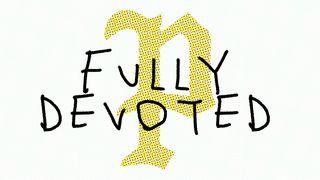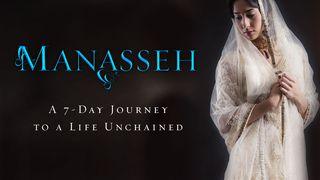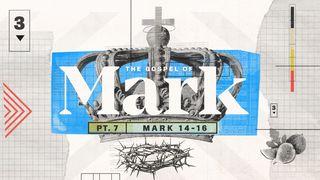Cities of Refuge: Returning to GraceSample

Day One: The Reckless Son
If you’ve already worked through the first two devotionals in the Cities of Refuge series, Running Toward Grace and Refined By Grace, then you are familiar with what the cities of refuge were and what their purpose was. We looked at ways that this fairly obscure law from the Old Testament can have application to our lives and how it pointed forward to our Savior and Great High Priest Yeshua (Jesus).
The cities of refuge were places in which someone who had taken the life of another without premeditation was given grace and mercy, given sanctuary from the next-of-kin who was lawfully and traditionally allowed to kill them in retribution, and welcomed into a community where they were cared for by the Levites (men set apart for service to the Lord).
In developing the third novel in my Cities of Refuge Series I asked myself: What might it look like for a person to have grown up within one of these cities—a place where convicted killers shopped in the market next to you, shared your food at community feasts, and sat next to you at the fire as the Levites told the stories of Yahweh?
Since my research about these cities led me to think of them in some ways as our own Church communities, I thought about my own experiences growing up in the Church and how as a young adult I walked away from everything I knew, turned my back on the Truth, and pursed my own desires. Therefore, as a “prodigal child” myself, a story began to form in my mind: a story of a girl who’d grown up in the household of one of the Levites in a city of refuge, and yet who turned her back on her heritage and her family, wasting the talents and gifts she’d been given.
But who was the Prodigal Son? If you are like me then you may have heard this parable of Yeshua hundreds of times in your lifetime but not taken the time to really dig into this familiar story and discover what beautiful gems might be hiding in plain sight.
As with any of the parables Yeshua told, it’s important to look at the context, including who the audience was. In order to do so we need to look backward a few verses and see that although there were many people following Yeshua during that time, Luke 15:1-2 makes it clear that he was specifically addressing the Pharisees and scribes during this talk. These were people who were already part of the covenant of Abraham. They were the pastors and theologians and upstanding church-goers of the day. And they were grumbling that Yeshua was hanging out with sinners and, horror of horrors, even eating with them!
So Yeshua tells the story first of the shepherd who leaves the ninety-nine sheep in the fold and goes out looking for the one that was lost (Luke 15:3-7). Sheep are notoriously dumb animals, they get into all sorts of scrapes and are prone to wander, but the shepherd cares for every one of his sheep and therefore searches out that wayward one and rejoices when it is found!
Then Yeshua tells the story of the woman who loses one of her silver coins, a treasure to someone who has very little, and proceeds to search high and low for that coin (Luke 15:8-10). When she finds it she rejoices! Yeshua sums up both of these parables by saying that heaven rejoices over each sinner that repents. Therefore, going into the Parable of the Prodigal Son, we already know the pattern Yeshua is setting up: something lost, something found, and rejoicing at the return.
Yeshua establishes that the young man is a son. He is already part of the family. His father is well off enough that he has an estate to split between his two children. The label that many of our Bible translations give for this passage is “The Prodigal Son”, which helps give us a clue to the nature of this young man, although the word prodigal is not actually used in the parable. Growing up in Sunday School classes and hearing the word “Prodigal Son” being referenced culturally, I always thought that a prodigal was someone who saw the error of their ways and returned in repentance, but prodigal actually is defined by the dictionary as “someone who spends money in a recklessly extravagant way.”
Understanding the true definition of “prodigal” actually shifted my understanding of the story a bit. Instead of looking at the younger son as simply rebellious, tromping off to having his own way, I saw him as a reckless person, someone who squandered what he was given, self-indulgent and irresponsible. This young man was not looking toward the future at all, nor protecting and investing the inheritance that he should one day be passing on to his own children. He was living in the moment, for himself, without any regard to the generosity of the father who had provided him with so much.
If we are in Covenant with our Father through the blood of Yeshua our Savior, then we are considered sons and daughters, just as the sons of Abraham were. We are joint-heirs with our Messiah, and inheritors of extravagant grace by the Good Shepherd who pursues us even when we run off like dumb sheep and get ourselves entangled in the snares of this world.
And yet, we all are guilty of being reckless with that grace, aren’t we? Instead of staying in the sheepfold and enjoying all the benefits of being in close relationship with the Father, many times we recklessly waste our gifts, forget that this world is not our home, and then are ridiculously surprised when we find ourselves eating with the proverbial pigs. But we can take heart, because even though we are prone to wander, he still loves us, he chose us, he counts us as his precious children, and the riches of his grace is lavish and it is boundless (Ephesians 1:3-12).
Questions for Consideration:
In what ways have you been a “prodigal child”? What gifts have you squandered? Did you repent of such wastefulness? If so, what led to your eyes being opened? If not, what is prohibiting you from laying yourself before Yahweh now in humility and pleading for mercy?
Spend some time today asking the Lord to shine a light on any ways you might currently be taking his grace for granted, or how you’ve been reckless with gifts that should be glorifying him instead of yourself. Then, with humility, repent of such prodigal behavior and lay yourself at the feet of the Merciful One who loves you and purchased you at the cost of his own Son.
Scripture
About this Plan

Best-selling author Connilyn Cossette invities you to join with her on this seven-day study inspired by her latest novel, Until the Mountains Fall, the third installment of the Cities of Refuge Series. These devotionals will focus on the parable of the Prodigal Son and how this redemptive narrative challenges us to examine our our hearts and minds and helps us more fully comprehend the boundless love of our Father.
More









